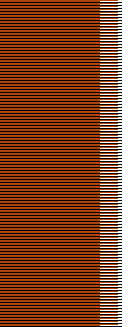

Guitar PicksGuitar picks (also known as guitar plectrums or plectra) have existed in the plastic form we know today since 1922, when the company D'Andrea Picks started producing them out of celluloid. Up until then guitarists had made picks out of various materials customizing them for their own use. This company also started the trend of custom picks, as they were the first to start printing the company name on the picks. They also defined the pick shapes by numbers that are still used today, like the 351.
Getting to know your picks is quite important as different types and thickness of the picks can truly alter the sound and the way of playing the guitar. Choosing the right picks is something I truly can't give a good answer to, as it depends a lot on personal preference. However, I can provide some general guidelines that you can use in your experimentation. Picks are quite cheap so it won't cost a lot to experiment.
Browse guitar picks at zZounds.com
Guitar pick types, materials and shapesThere are so many types, materials and shapes of picks, so I will only explain a bit about the most common types here. The most popular of them all is probably the Dunlop Tortex 351. The Tortex material was designed to replace the tortoise shell picks as they were banned in the 1970s. 351 is the shape number, this shape is an isosceles triangle (a triangle where two of the sides are of equal length), which is the most commonly used shape in guitar picks.
Thickness of guitar picksPicks come in a variety of thicknesses. This is needed to meet the demands of different string gauges, playing techniques and the type of sound they produce. For example a heavy metal guitarist using a thicker string gauge will usually prefer a quite thick pick to be in control of the playing and to produce that truly heavy sound.
In general a thin sharp tipped pick produces a sound with a pointy attack and a "click" or "flapping" sound, also known as pick noise, while a thicker pick with a round edge will produce a rounder sound with not so much attack and pick noise.
|
|||
|
All content and images, except where noted are Copyright
2004-2009 Build-a-recording-studio.com. Content and images from affiliates are copyright to their respective owners. This site is in affiliation with and is powered by
|

